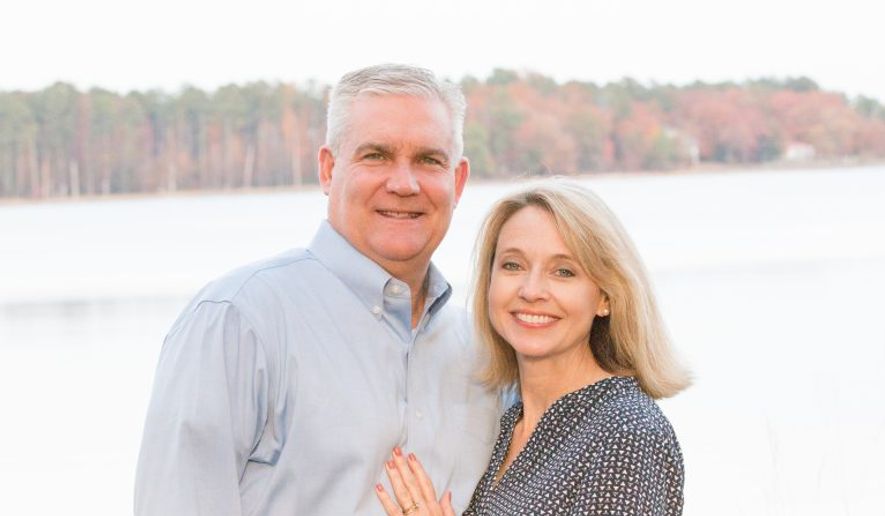One of the Republicans running in South Carolina’s special congressional election was still on the Republican National Committee’s payroll when he began his campaign in February, raising questions among some party members and politicos about the RNC’s role in the race.
Chad Connelly was paid $120,000 last year and $31,000 this year by the RNC to serve as the party’s director of faith management. He collected checks until he resigned in early March, the month after he announced his candidacy.
Analysts said the legality of the payments depends on the details of the arrangement — but said politically the revelation looks bad because it suggests the national party was picking favorites.
“The RNC is a Washington establishment,” said Katon Dawson, a former chairman of South Carolina’s state GOP. “I’m not sure if Chad is on the payroll, but if he is, it would certainly go against what we do in South Carolina, which is we get out of the way of primaries when they start and certainly don’t put the establishment behind any specific candidate.”
Mr. Connelly received his first campaign donations Feb. 10, according to federal records, and announced his campaign and filed his organization papers on Feb. 13 — but remained employed by the RNC for weeks afterward.
The arrangement was first reported by a South Carolina politics blog, FITSNews.com.
Mr. Connelly is one of a half-dozen candidates in the GOP primary next week, ahead of the final election June 20.
“Me nor the RNC did anything wrong,” Mr. Connelly told The Washington Times. “We were super careful because we knew somebody would try to say this.”
He said he visited roughly 40 states while working for the RNC, trying to rally religious leaders to back the GOP in last year’s elections.
He told The Times allegations of impropriety were a political hit job on him, and he said he suspected one of his opponents was upset over his endorsements by members of the House Freedom Caucus and by former Arkansas Gov. Mike Huckabee.
“There’s two really wealthy, self-funded candidates, who I think they assume were going to beat me bad, and they find themselves losing,” he said.
Some RNC members said they saw no problem with the overlap.
“I’m fine with it. He did so much for the party and work, so I’m sure he and the RNC worked all that out, so I’m comfortable with that,” said Glenn McCall, South Carolina’s RNC committeeman.
Texas RNC committeeman Robin Armstrong and Louisiana RNC committeeman Ross Little also praised Mr. Connelly’s work for the RNC and said the paychecks weren’t a concern.
“I’m unclear why this is news,” said Ryan Mahoney, the RNC communications director.
He said Mr. Connelly does not currently receive a salary from the party, and said they moved swiftly once he filed paperwork in South Carolina on March 7 to be on the ballot.
“Chad did great work for the RNC, but we believed it was appropriate to part ways once it was clear he would be a candidate for Congress, which is why his RNC employment ended the week before his final paperwork was filed,” said Mr. Mahoney. “The RNC is committed to keeping the 5th Congressional District under conservative Republican leadership, and we wish all the Republicans well, but the RNC is not involved in this primary.”
Federal Election Commission records showed Mr. Connelly was paid bimonthly in January and February, and collected a final payment of $7,535.34 on March 15, or more than a month after he began raising money for his campaign.
Jerad Najvar, an election law attorney in Texas, said the arrangement “could be entirely legitimate,” but it depends on the specific facts of the payments and the work Mr. Connelly was doing.
“You just would need more facts. You have to look at the relationship or the arrangement in place before you could determine whether it’s a problem,” said Mr. Najvar.
Michael Kang, a law professor at Emory University, said there’s a risk the party could give money to the employee-candidate beyond the contribution limit.
“The bigger thing here is the appearance,” said Mr. Kang. “It may be that it doesn’t look very good.”
Tom Mullikin, one of Mr. Connelly’s GOP opponents, said he was “disgusted” by the payments. He said the party is supposed to be overseeing a fair and open primary.
“I could not have imagined the party paying somebody who had offered himself as a candidate,” he said.
R.J. May III, the spokesman for Ralph Norman, a state representative who is also in the running for the congressional seat, said Mr. Connelly had said his ties to the national party were ended.
“We are as surprised and disappointed as everyone else,” said Mr. May.
Morton Blackwell, Virginia’s RNC committeeman, said the salary payments raised questions.
“Human institutions are imperfect, and political parties are no exception,” said Mr. Blackwell. “If a staffer for a national Republican organization was using his position in that organization to give himself an unfair advantage, the donors to whatever organization that was would consider that inappropriate.”
Ada Fisher, RNC committeewoman for North Carolina, also thought an appearance of impropriety was inappropriate.
“If something like that is happening, you’re going to have to investigate it to find out where the money came from, and you’re going to have to prove it,” said Ms. Fisher. “And that will be kind of hard to prove.”
She said in North Carolina, the party is clear that it won’t get involved in Republican primaries. “We want it to be fair to everybody, and people who want to run should be able to run.”
• Alex Swoyer can be reached at aswoyer@washingtontimes.com.




Please read our comment policy before commenting.